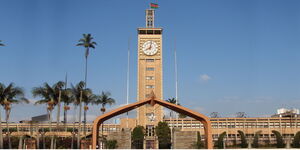Kenyans have been forced to stop travelling upcountry regularly using private means due to the rise in fuel prices.
In the last review, the Energy and Petroleum Regulatory Authority (EPRA) revised fuel prices upwards, yet again.
In January this year, a litre of petrol was retailing at Ksh 177.30 in Nairobi. But today, a litre is retailing at Ksh 217.36, representing a 22.5 per cent increase in 10 months.
On the other hand, a litre of diesel was retailing at Kshs 162, with Kerosene at Kshs 145.94, at the start of 2023.
Currently, diesel is at Kshs 205.47 while kerosene is selling at a price of Kshs 203.06, an increase of 26.8% and 39.1% respectively.
Taking to social media, a section of Kenyans on X (formerly Twitter) explained how they no longer make frequent trips upcountry to visit their kin, due to the high fuel costs.
One user narrated “ Previously, I would drive upcountry any afternoon I found myself idle, since I needed just ksh 1500 for fuel. Nowadays, I need around Ksh 3000 to fuel the car home, and often opt to send cash home instead of visiting.”
Another X user agreed, writing, “I am also affected. I have reduced the trips so as to pay less tax.”
“Very true. My colleague has stopped using his vehicle. We work in Isiolo and he used to travel home every weekend using his vehicle,” read another response.
Some of the commenters noted that they have ditched their private vehicles for public service vehicles (PSVs) whose fare prices are more affordable.
However, the matatu industry is also grappling to stay in business amid the steep fuel price.
Kenyans.co.ke spoke with an official from the Matatu Owners Association, Mr Branden Marshall, who shed more light on the impact of high fuel on PSV owners.
According to Marshall, long-distance travel has been most impacted by the fuel price hikes, with fare prices increasing between Kshs 200 and Kshs 500.
On the other hand, Marshall noted that while there has been an increase in passenger numbers, the matatu owners around Nairobi city are struggling to remain afloat since they are finding it difficult to raise the fares after every fuel price hike.
To survive, Marshall said that most saccos have increased the rush hour periods. For instance, moving the morning rush hour from 5-7, to 4-7 am, and the evening rush hour from 6-8, to 5-9 pm, depending on the routes.
Nevertheless, the tactics are barely sufficient, since the revenues have reduced and most PSV owners are struggling to service loans used to purchase the vehicles, leading to auctioneers coming for the matatus in extreme instances, says Marshall.
He noted that the steep fuel costs are trickling down to the matatu owners and then to the passengers.
Recently Nairobi County passed The Nairobi City County Finance Bill, 2023 which will see parking fees in the central business district increase. This will deter even more Nairobians from relying on their private vehicles for transport.
Thus, amid the increasing cost of living, Kenyans can only hope for a turnaround as the December holidays approach.












